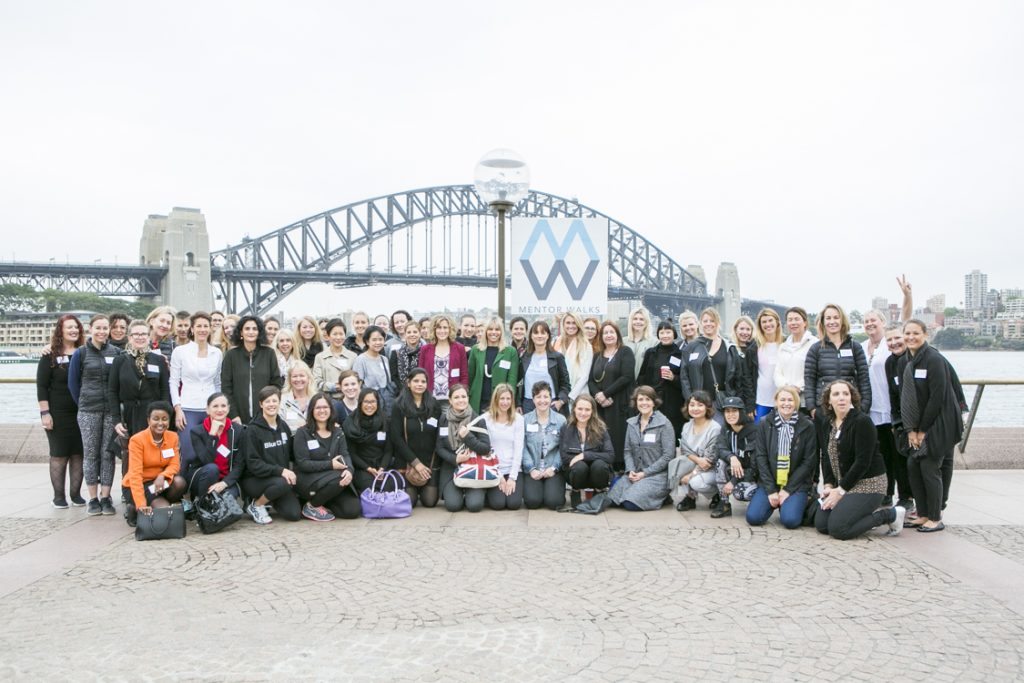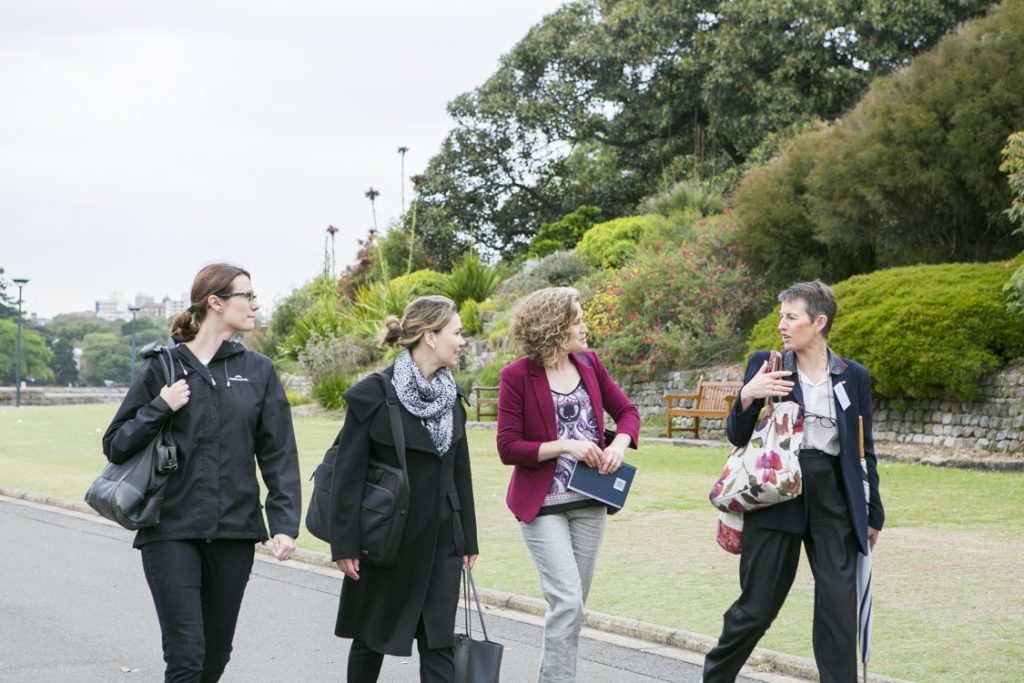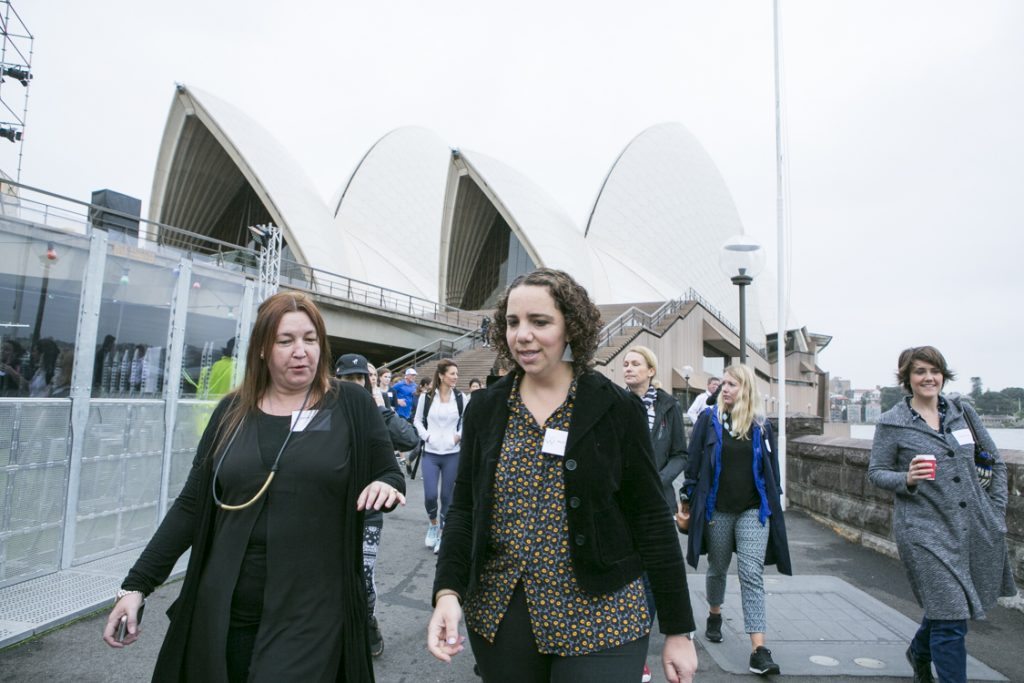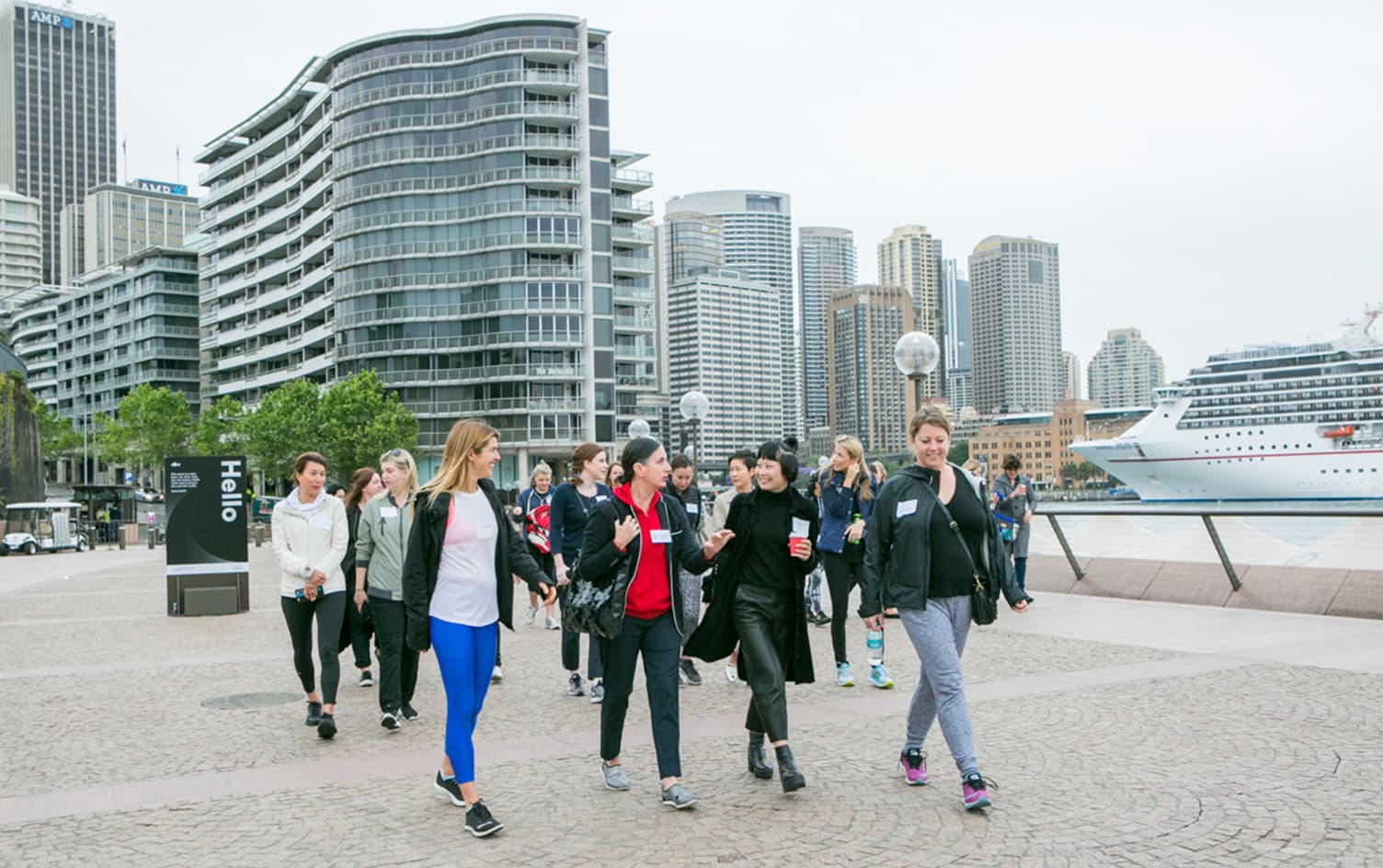Whenever you hit a productivity wall at work, you know the drill: Get up and go for a walk to get your creative juices (and blood) flowing again. It’s not just an excuse to take a break. Research has shown that thinking on your feet benefits your brain as much as your body. With that in mind, consider stepping out for a stroll with a colleague or friend you admire, and see if they can help you brainstorm a way out of your current career conundrum. This is the premise for a new program called Mentor Walks that just launched in Australia in October 2016.
FIND A MENTOR, TAKE A WALK
After attending Ernst & Young’s Entrepreneurial Winning Women conference in Shanghai this May, two Sydney-based businesswomen, Adina Jacobs and Bobbi Mahlab — who had never met before the two-day event — were inspired by speaker and fellow Aussie Michelle Garnaut’s suggestion to take an hour walk with a mentor once a month.
Garnaut, a successful restaurateur, had started these so-called Mentor Walks in Beijing four years prior and led a 7:30 a.m. session at the conference, inviting about 50 mentees to chat with 15 mentors in Shanghai. Jacobs and Mahlab participated and were instantly hooked. The two strangers decided to team up to bring this plan back home — with Garnaut’s blessing, of course.
Fast forward to December 2016. Jacobs and Mahlab have already hosted two Mentor Walks in Sydney, attracting people from all walks of life with careers in the arts, government, professional services, science, marketing, media, academia, entrepreneurship, health, fitness and more. Mentor Walks will have 10 monthly events in 2017, starting in February, with hopes of expanding the women-only program to other cities Down Under (Brisbane, Melbourne and Wagga) and beyond.
MyFitnessPal recently caught up with Jacobs, a 42-year-old mother of three, to find out more about this special series, which may motivate you to take extra steps in your hometown toward a better career in the new year.

MyFitnessPal: What intrigued you most about the Mentor Walk in Shanghai?
Adina Jacobs: There was just something about the energy of getting together with women who were prepared to share their experiences and learn from each other. It was so great! I loved the idea, and the connections that I made that day. I knew then that this was something that was missing in Sydney, and that we could bring it here.
MFP: How did you partner up with Bobbi?
AJ: Bobbi and I stayed talking after that first walk in Shanghai, discussing how can we do this back home. We were both in a position to give back to our community. We approached Michelle and said, “We’re very interested in setting this up in Australia. What are the next steps?” She was so supportive, offering to connect us with great local women who had always said it would fantastic in Sydney. So that was amazing.
MFP: Was it hard to get this program off the ground?
AJ: We started working on it in June — almost immediately after we got back from China. Michelle introduced us to people in Sydney, and we began tapping our own networks, explaining the program to potential mentors. We wrote up a one-page release to explain the program and what we wanted to achieve. It was very easy for us to get amazing women on board.
For the first two walks, we aimed to limit it to 15 mentors and 45 mentees. We wanted to keep it tight so that we could monitor how it went and make sure that we were doing things right. We reached out to a lot of women’s community groups on Facebook and encouraged them to apply to be a mentee. As part of that process, we ask the mentees to come with one burning question to kick off the conversation. That way everyone gets an opportunity to learn from other people’s experiences. We received well over 100 applications each time for these 45 spots.

MFP: How does Mentor Walks Australia differ from the one in China?
AJ: They ran it slightly different in Shanghai. It was more casual. You get to the meeting spot, see who the mentors are and work out who is a good match for you. Then you walk in a group of about two to four mentees per mentor. I got there a couple of minutes late, so I wasn’t perfectly matched with my mentor. I wouldn’t have necessarily chosen her, but I learned a lot from her and the other women.
In Australia, we decided to prematch mentees with mentors before meeting on the steps of the Sydney Opera House. We ask people to give us information about their industry, what they want to learn, and what are their challenges, then we match them accordingly. This way, they have the best chance of success on the walk. It’s a one-off event, so you don’t get the same mentor or group of mentees every month. Our mentors are these highly accomplished women who we can’t expect to commit month after month and fulfill an ongoing relationship. They can come whenever it’s convenient for them, and because of that, we’ve been able to get some brilliant women.
MFP: People don’t find these superstar mentors intimidating?
AJ: The power of these women coming together, wanting to be generous, share what they’ve learned and learn from other people breaks down barriers straight away. Being outside and walking also breaks down other barriers. It just puts people on equal footing. When you go to networking events, you’re always trying to figure out who you should be talking to. This takes a lot of the stress out of that. You already know that you’re matched with the right people and can dive right in.
MFP: Why walking opposed to talking over coffee?
AJ: First of all, getting outside and taking in the fresh, open air is such an amazing way to start the day. A lot of people just don’t have time to get out and enjoy it. We thought that it was pretty inspirational to put people outside in a beautiful environment and get them together with extraordinary women.
When you’re sitting at a table drinking coffee, you may be writing notes the whole time and miss an opportunity to extend a conversation naturally. When you’re walking and not writing, you’re more open and aware. It also exercises your brain because you have to actually remember things rather than write them down. I think that helps deepen the relationships, and, therefore, lets you get a lot more out of it.
Also, walking side by side (opposed to sitting face to face) can make the environment feel a lot more casual. It lets people’s guard down a bit. I find that in my business, if we have to have a tough conversation, we go for a walk.

MFP: How far are you walking at these morning events?
AJ: It really depends on the group. We give people a couple of pathway options: You can go around the Sydney Opera House, which is on the harbor, or wander through a nearby botanical garden. The group also sets the pace. Some stop to chat for a bit, then continue to walk and stop again. On average, you can cover about 2–3 miles between 7:30 a.m. and 8:30 a.m. We set it up to meet early so everyone can be at work by 9 a.m.
MFP: Would you ever open it up to other activities like Mentor Hikes, Mentor Bikes, Mentor Runs, etc.?
AJ: It’s early for us to be thinking about other activities right now, but we’re definitely open to looking at different opportunities.
MFP: What’s been the overall response so far?
AJ: It’s been fantastic! We’ve had one group of three women meet up for lunch since their walks to continue the conversation. We’ve had some great situations where women in their group have said, “Oh, you need to contact X, Y, Z.” or “I know somebody. I’ll put you in touch with them.” And so that links them up with people that they’ve been trying to get a hold of for ages.




